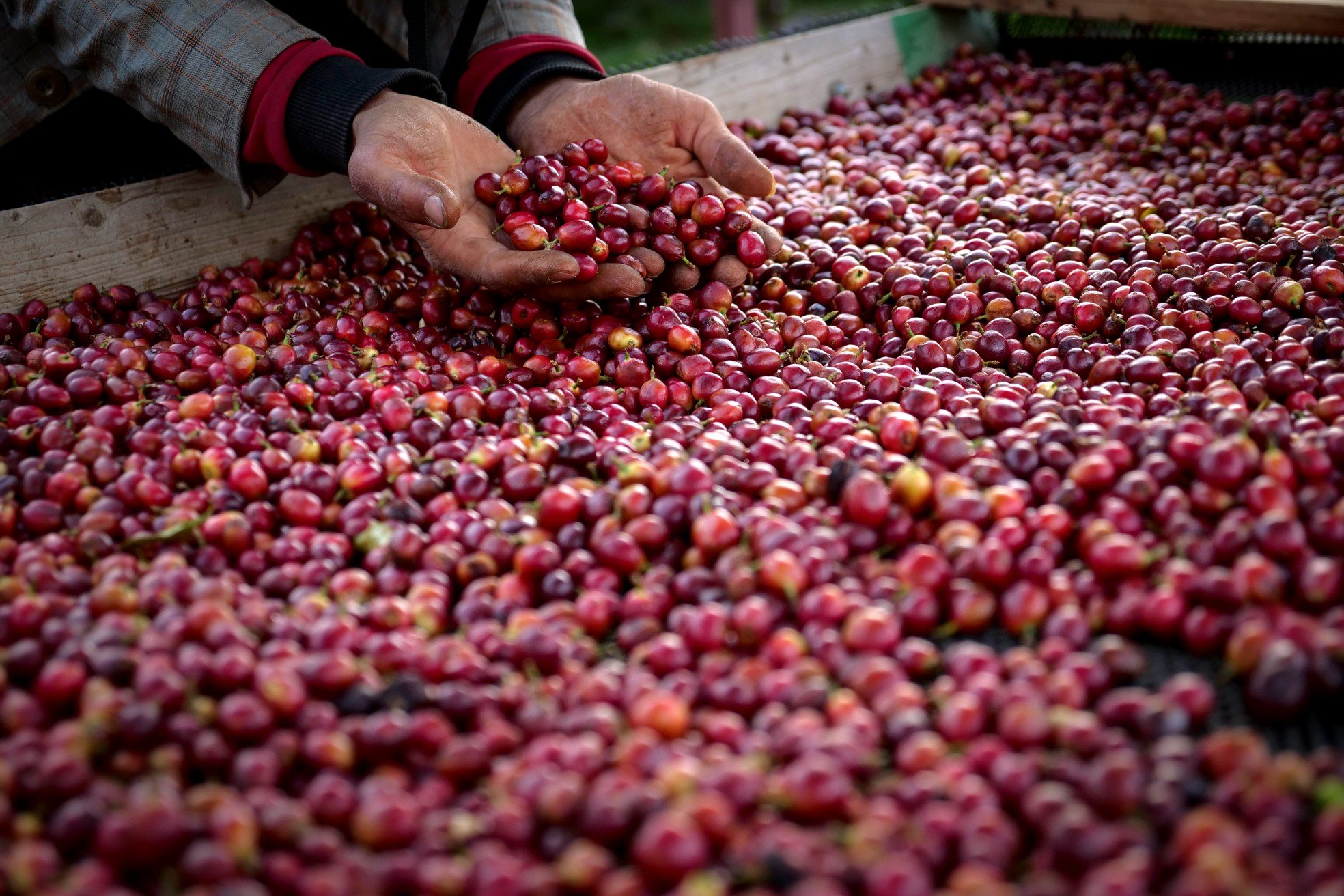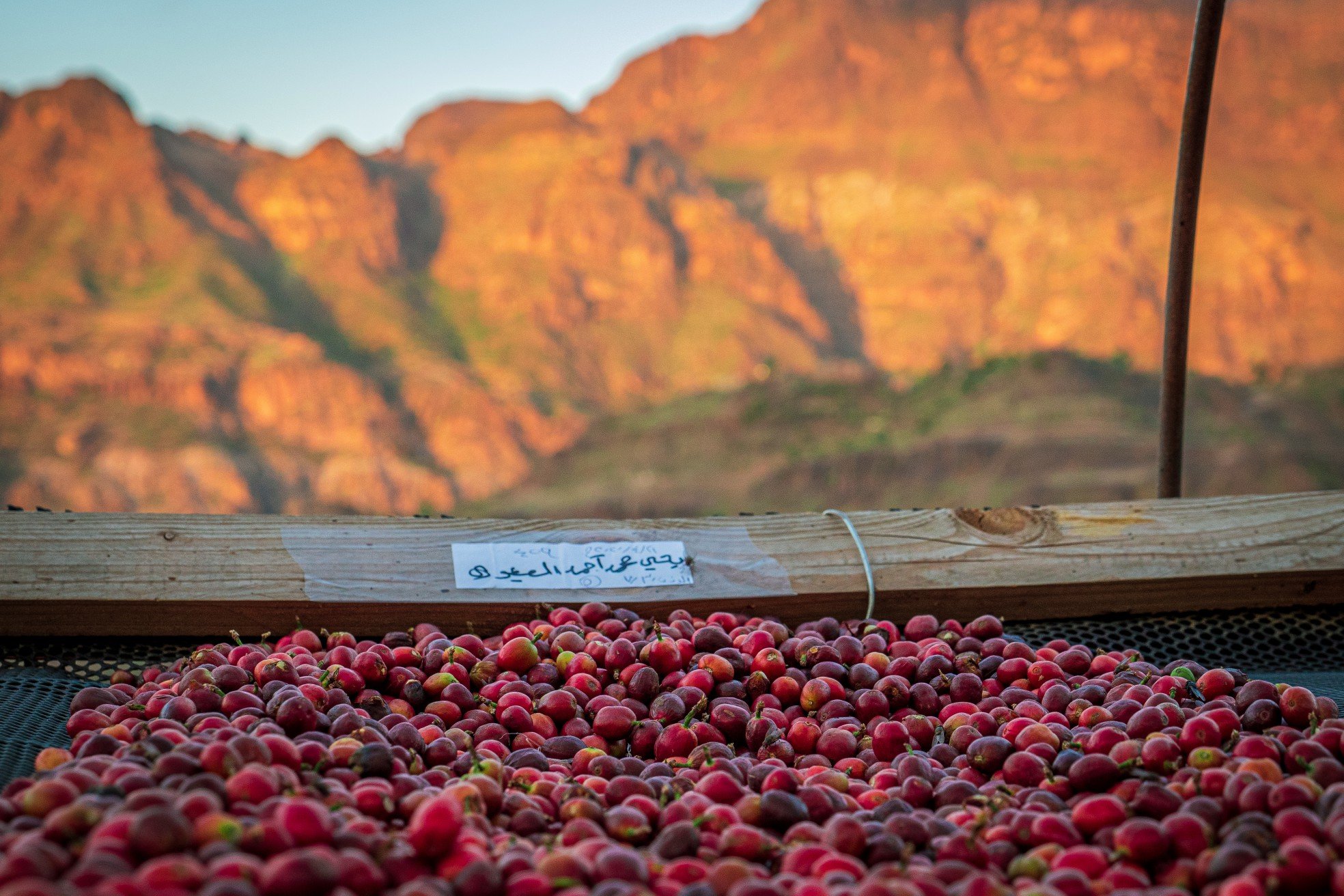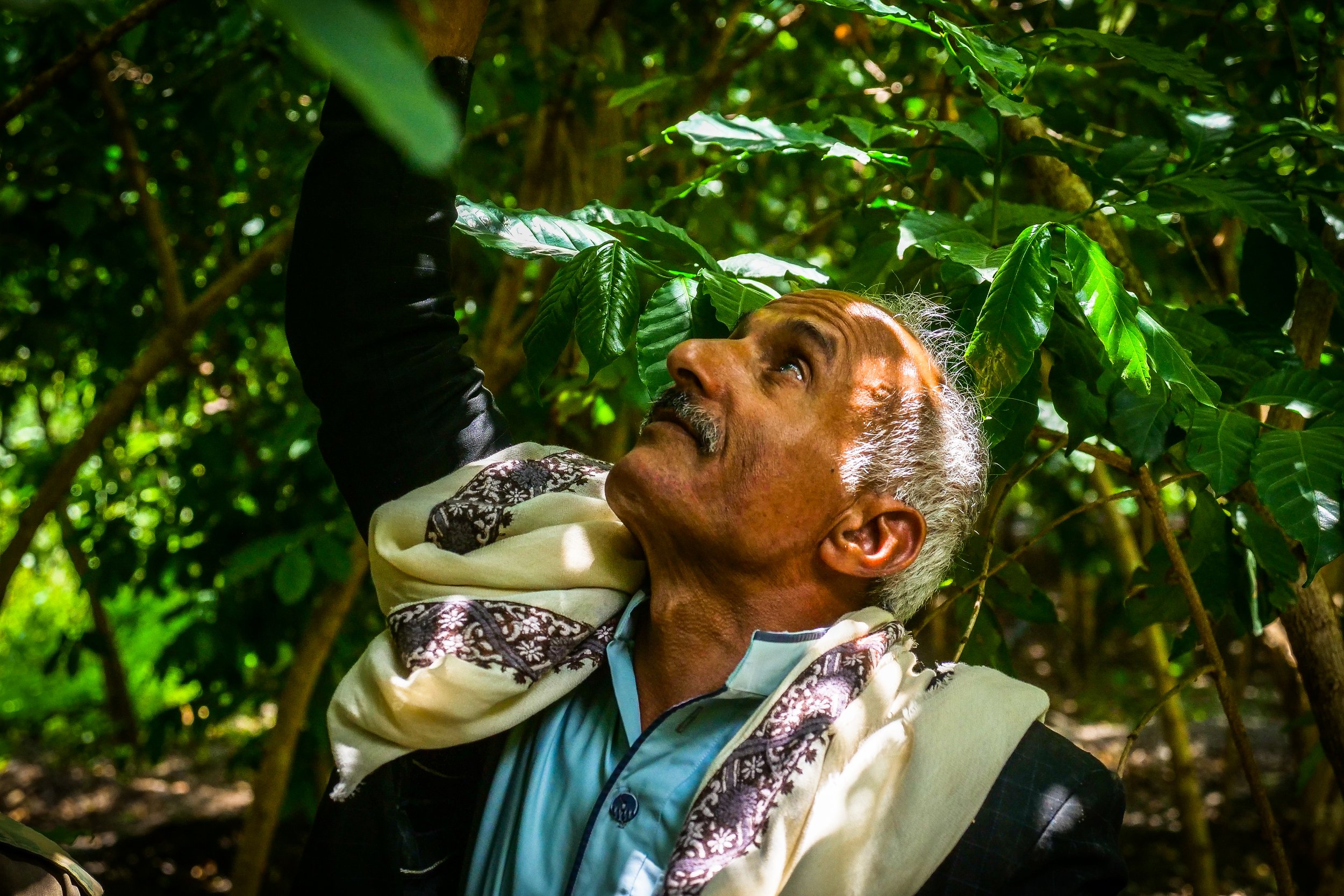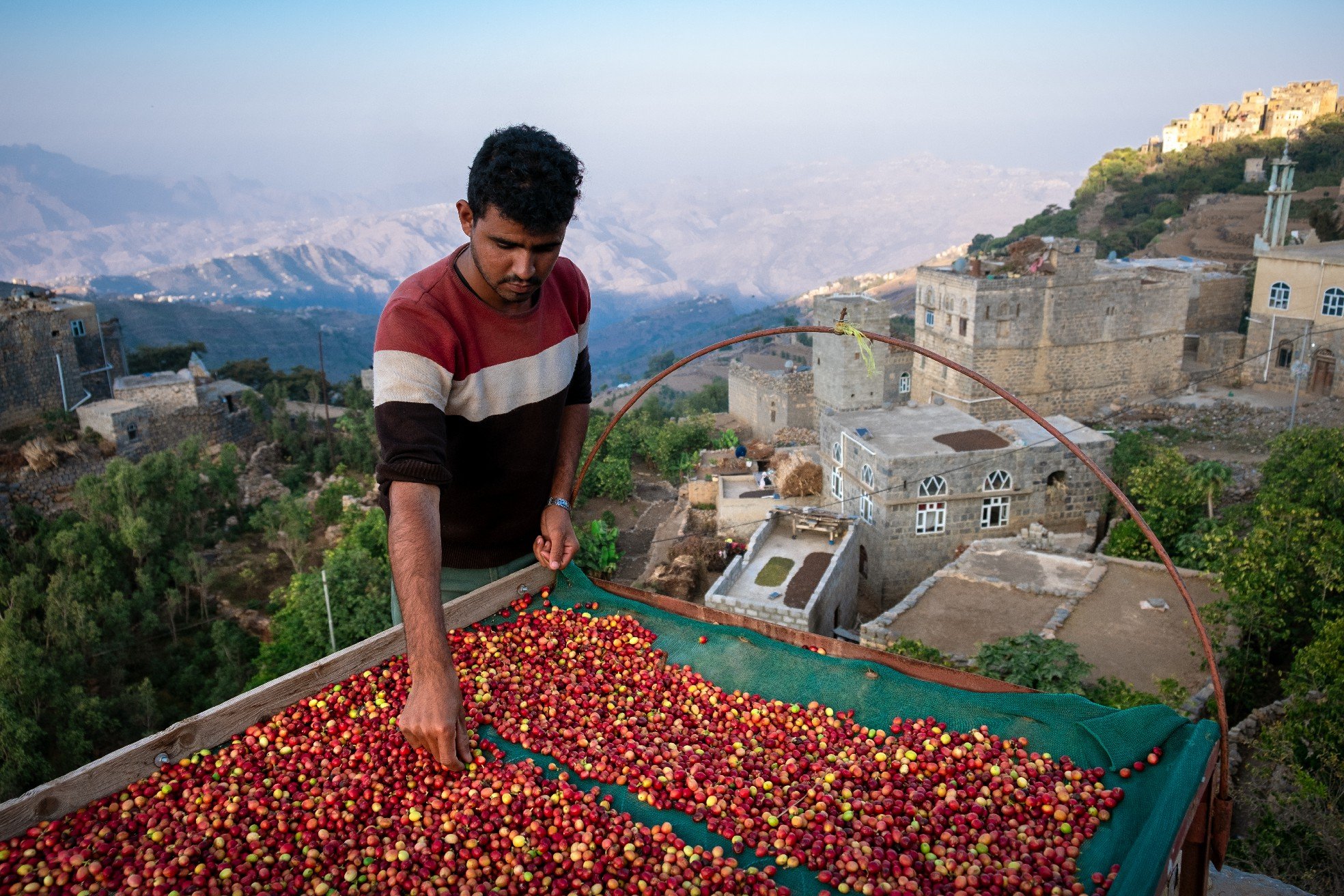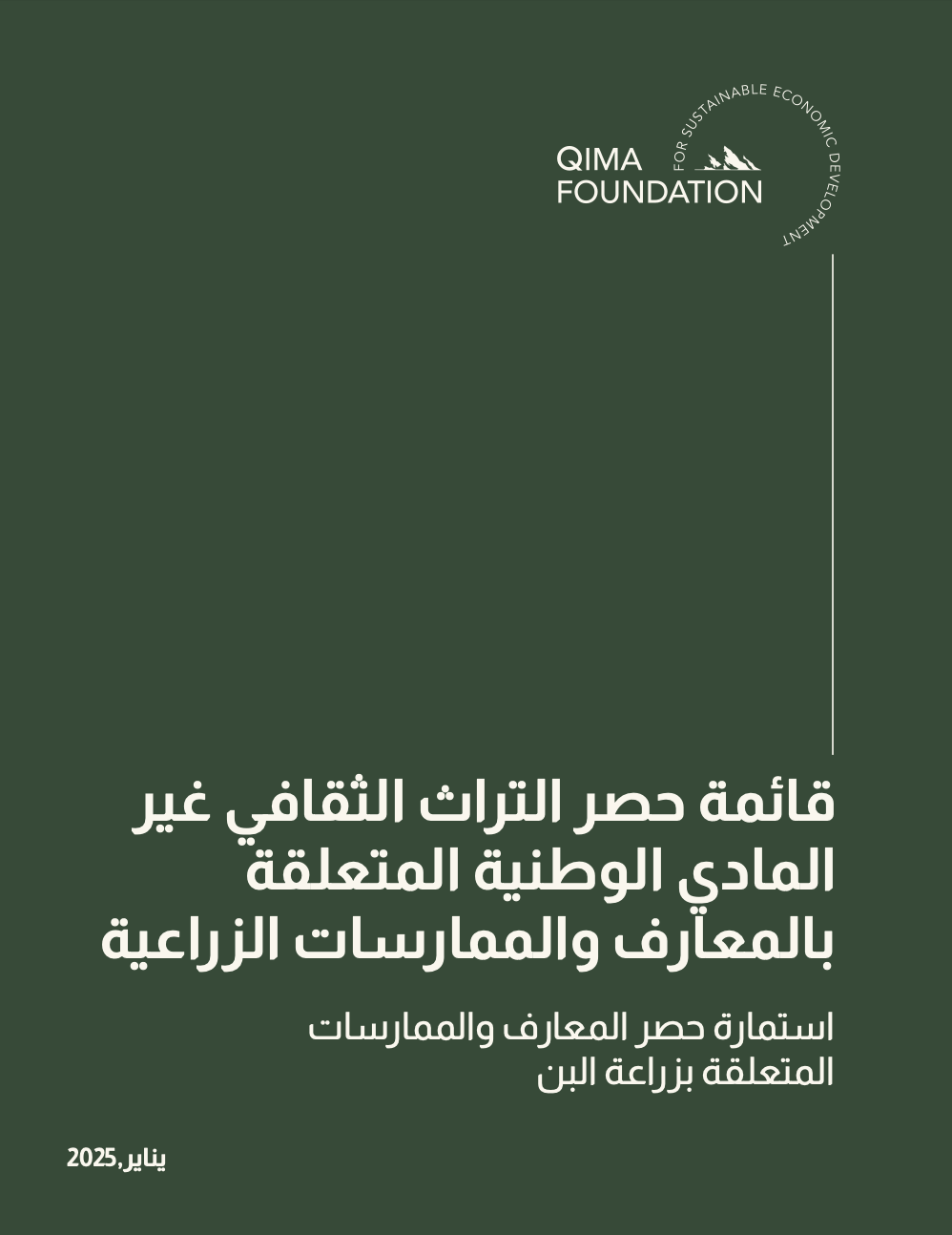
NATIONAL INVENTORY OF INTANGIBLE CULTURAL HERITAGE RELATED TO AGRICULTURAL KNOWLEDGE AND PRACTICES
Knowledge And Practices Related To Coffee Cultivation

YEMEN : THE BIRTHPLACE OF COFFEE CULTURE
When one thinks of the countries around the world most associated with coffee, Yemen probably doesn’t come to mind. But coffee is deeply connected to the country’s history and the world owes much of its coffee culture to the little-known country. Whilst the coffee tree has its roots in Ethiopia, the coffee drink originated in Yemen and up until the early 1700s, Yemen was the world’s sole exporter of coffee
The Rise and Fall of Yemeni coffee
The bean is said to have been first consumed as a beverage in western Yemen in 1450 by the country’s mystical Sufi monk population who used the drink to help them stay awake during all-night meditations. This discovery marked the beginning of the world’s coffee drinking culture as we know it today – from barista brews to cupping forms to roasting curves, and everything in between.
Yemen prospered as coffee made its way around the world; by the early 1700s, virtually the entire country’s income came from coffee exports, and the whole world’s coffee supply came from Yemen. As a result of this boom, much of Yemen’s farming population moved to growing coffee in the 17th and 18th centuries. Today, it is not uncommon to come across Yemeni farmers who have been working in coffee cultivation for multiple generations going back 400-500 years.
Global demand for coffee led colonial trading companies, including the Dutch, French, and British East India Companies, to smuggle Yemeni coffee beans and establish forced cultivation systems in their colonies. This exploitation allowed colonial powers to produce and export their own coffee, sidelining the quality Yemeni coffee once known worldwide. As a result, Yemen’s market share dwindled dramatically—from being the sole coffee exporter to producing only 6% of the world’s coffee by 1800, and now less than 0.1%.

Yemen is a treasure trove of coffee genetics.
It is a well-known fact that 98+% of the world’s cultivated varieties can be traced back to Yemen. Yet despite this fact, there has been practically no work carried out to explore Yemen’s genetic landscape. Since its establishment, Qima Coffee has been carrying out extensive research to develop a better understanding of Yemen’s genetics.
Our findings have shown that Yemen contains the entire world’s spectrum of cultivated coffees.
We also discovered a pure arabica mother population that represents a new ocean of genetics with untapped potential to transform the genetic landscape of Coffea arabica .

Best of Yemen Coffee Auction.
Each year, Best of Yemen shines a light on issues crucial to the Yemeni coffee industry. It has enabled Qima to present the finest Yemeni coffee to the world, bringing the heritage and stories of Yemeni farmers into the mainstream. By uniting strong partners from around the globe, we have added depth and purpose to the coffee value chain.
Read News Article
Best of Yemen Auction Lot Breaks Price Record at $444 Per Pound
Daily Coffee News | August 15, 2023

Yemen's Timeless Legacy: Coffee as Cultural Heritage
For centuries, Yemen has been synonymous with coffee, not only as a commodity but as a profound symbol of cultural identity and tradition. Yemeni coffee embodies a unique heritage where each sip tells the story of ancient cultivation practices and deep-rooted community values. In Yemen, coffee is far more than a beverage—it's an art form passed down through generations, reflecting the intimate bond between the land, its people, and the cherished traditions of hospitality and communal sharing. Today, despite the decline of commercial production, this rich legacy continues to inspire pride and reverence, making Yemeni coffee an enduring emblem of cultural heritage that unites and celebrates the nation's storied past.



